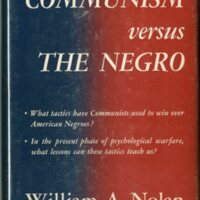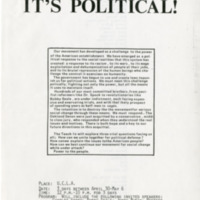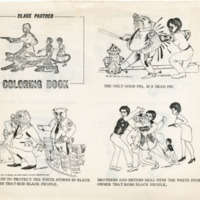The Cold War and Civil Rights in the United States
In the aftermath of World War II in the United States, Cold War tensions with the Soviet Union arose at the same time that Black Americans increasingly demanded the civil rights denied to them by legal and structural racism, particularly (but not exclusively) in the Jim Crow South. Opponents of the Civil Rights Movement weaponized Cold War fears of communism and communist infiltration against Civil Rights leaders and activists. They regularly accused those who fought against segregation, the disenfranchisement of Black people, and other forms of discrimination of being un-American communists or communist sympathizers - as activist Anne Braden noted in her pamphlet “House Un-American Activities Committee: Bulwark of Segregation,” “the advocates of civil rights are persistently called communists. This has always been true, but it intensified during the 1950’s when Communist-labeling became a national pastime, and it has continued to increase in the 1960’s.”
As civil rights, the anti-Vietnam war movement, and other social movements gained ground in the United States in the 1960s, conservative critics continued to connect progressive politics to communist, pro-Soviet danger. Government organizations, particularly the FBI, targeted groups such as the Black Panther party on the grounds that they threatened national security. As noted in a recent Chicago Sun-Times editorial, “[FBI Director J. Edgar] Hoover wanted to ‘disrupt, misdirect and otherwise neutralize’ African American organizations and prevent the rise of charismatic and powerful Black leaders. In 1976, a Senate select committee concluded that the FBI had set out to destroy the Black Panther Party.”




